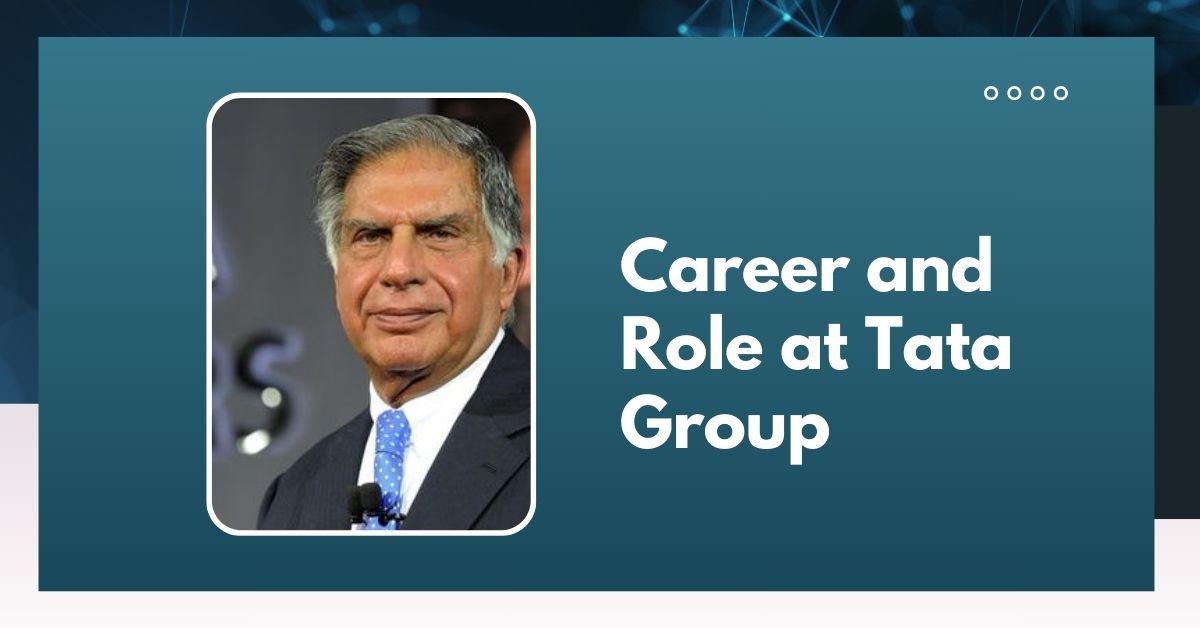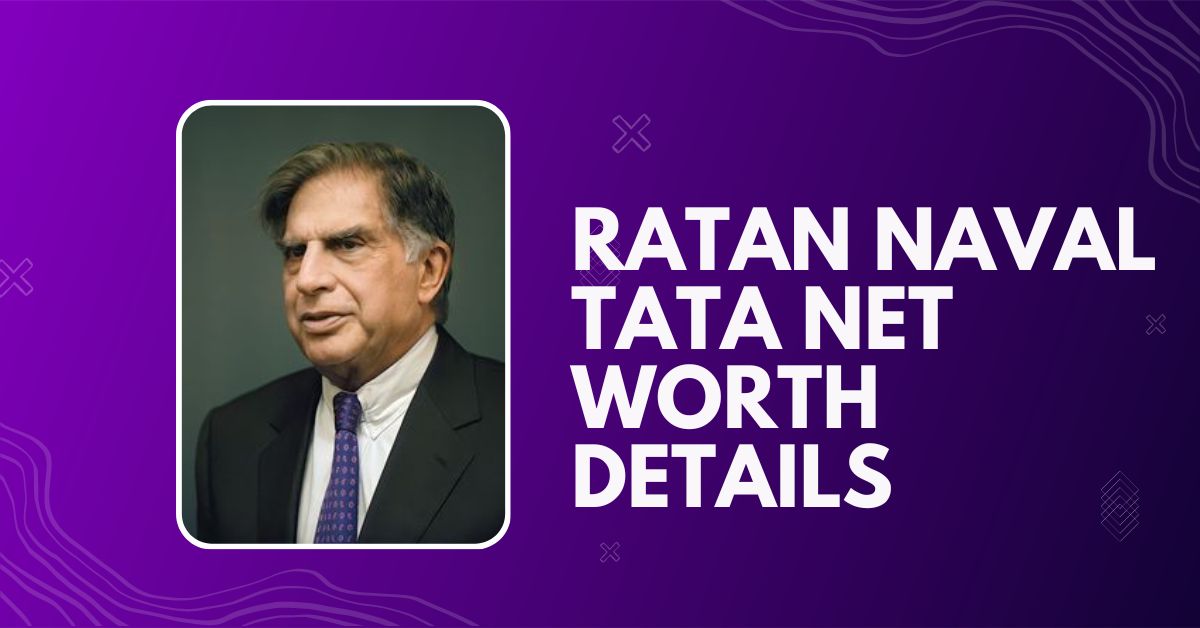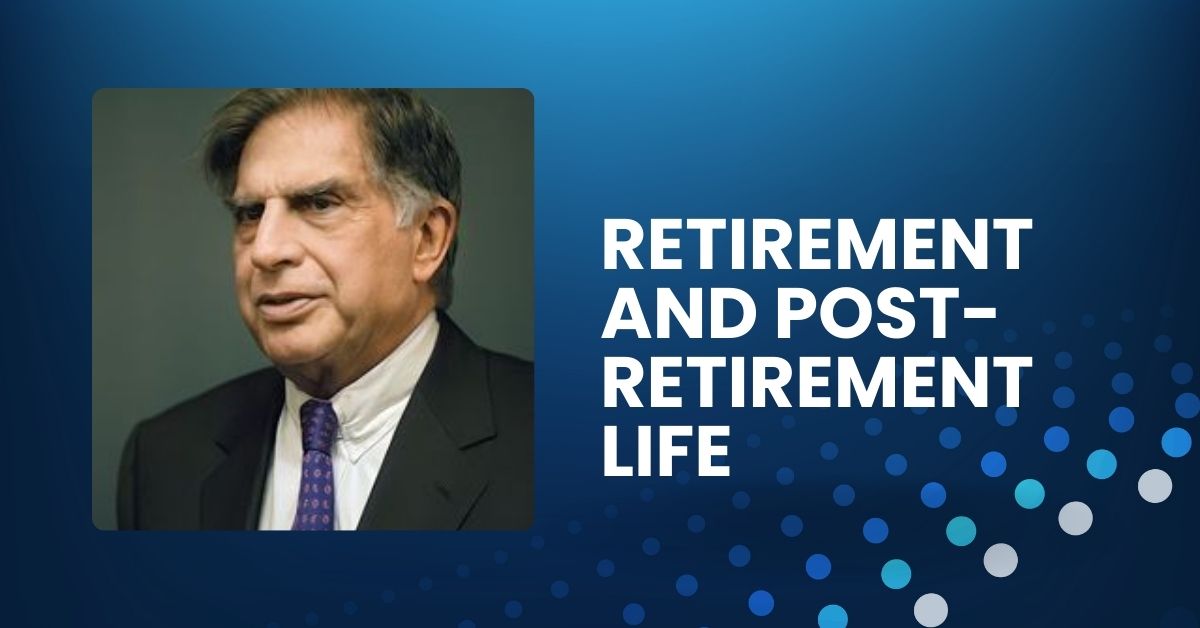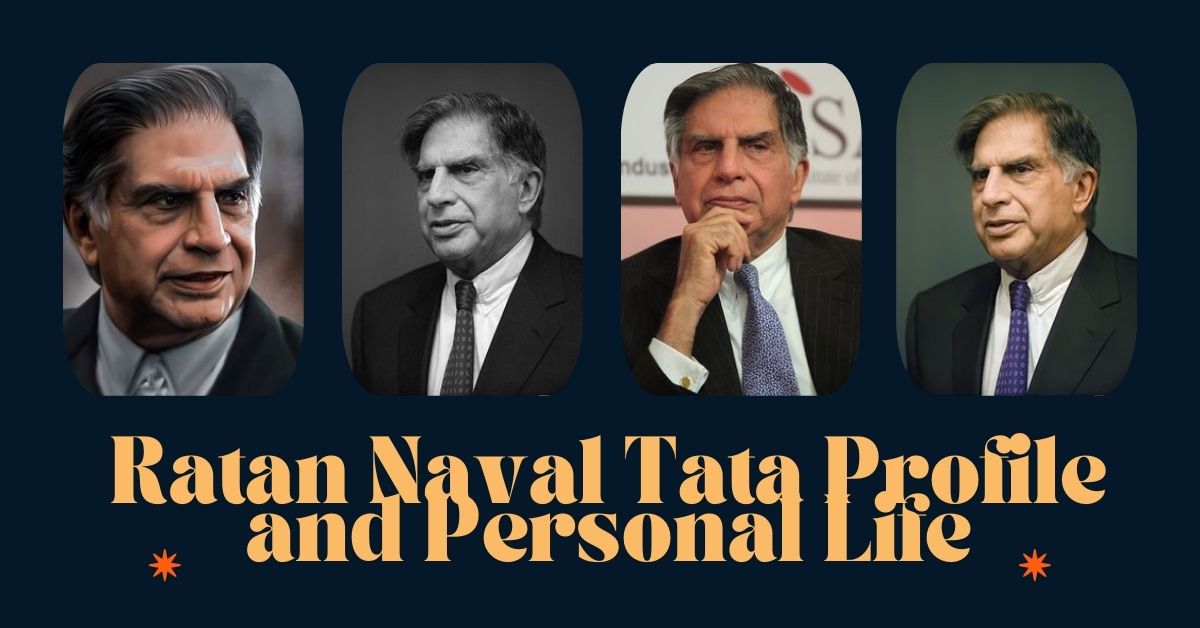Ratan Naval Tata Profile and Personal Life
Know the details about Ratan Naval Tata Profile and Personal Life, Ratan Naval Tata’s Top Business, Achievements, and Net Worth.
Ratan Naval Tata: A Comprehensive Profile and Personal Life Overview
Ratan Naval Tata, one of India’s most prominent industrialists, philanthropists, and business leaders, is known for transforming the Tata Group into a global powerhouse. His legacy is marked by not just his business acumen but also his ethical leadership and philanthropy, making him a role model for many aspiring entrepreneurs.
Ratan Naval Tata Profile and Personal Life
Profile Overview
- Full Name: Ratan Naval Tata
- Date of Birth: December 28, 1937
- Age: 86 years (as of 2024)
- Native Place: Surat, Gujarat, India
- Living Place: Mumbai, Maharashtra, India
- Occupation: Industrialist, Philanthropist, Former Chairman of Tata Group
- Years Active: 1962 – Present
- Spouse Name: Unmarried
- Children: None
- Death Date and Time: 23:30 IST on 9 October 2024
Early Life and Personal Life
Ratan Tata was born in a prominent Parsi family in Surat, Gujarat. His father, Naval Tata, was an adopted member of the Tata family, while his mother, Sooni Tata, was a homemaker. His parents separated when he was just ten years old, and Ratan Tata was raised by his grandmother, Lady Navajbai Tata. Despite this early adversity, Tata remained focused on his education and personal development, which shaped his disciplined, ethical leadership style.
Ratan Tata is a private individual who has kept much of his personal life away from the public eye. Although he never married, he has mentioned in interviews that he came close to it on a few occasions but circumstances prevented it. His love for animals, especially dogs, is widely known, and he has been an advocate for animal welfare throughout his life.
Education
Ratan Tata’s education laid the foundation for his successful career. He completed his schooling at the prestigious Cathedral and John Connon School in Mumbai. Later, he pursued higher education abroad:
- Cornell University (Architecture and Structural Engineering) – 1962
- Harvard Business School (Advanced Management Program) – 1975
His education in architecture and engineering has played a significant role in shaping his strategic thinking and leadership in the business world.
Career and Role at Tata Group
Ratan Tata joined the Tata Group in 1962, working on the shop floor of Tata Steel, an experience that grounded him in the practicalities of business operations. His first significant leadership role came when he was appointed as the Director-in-Charge of the National Radio and Electronics (NELCO), which was then struggling financially. Although the business did not survive, Tata’s leadership skills were on display.

In 1991, Ratan Tata succeeded J.R.D. Tata is the Chairman of the Tata Group. Under his leadership, the Tata Group expanded globally, acquiring several international brands and businesses. Some key achievements during his tenure include:
- Tata Motors acquiring Jaguar Land Rover (2008)
- Tata Steel acquiring Corus Group (2007)
- Launch of Tata Nano (2008), the world’s cheapest car
- Tata Consultancy Services (TCS) became one of the leading global IT services firms
Rise to Leadership: Transforming the Tata Group
Ratan Tata’s meteoric rise to the top of the Tata Group came after years of perseverance and dedication. In 1991, he took over as the Chairman of Tata Sons, the holding company of the Tata Group, after the retirement of his predecessor, J.R.D. Tata.
Under Ratan Tata’s leadership, the Tata Group underwent a massive transformation. He restructured various businesses, sold off non-performing units, and streamlined the company’s operations. During his tenure, Tata Sons grew exponentially, expanding into new sectors, including technology, hospitality, and telecommunications.
Here are some of the significant achievements of Ratan Tata’s leadership:
- Acquisition of Tetley: In 2000, the Tata Group acquired the British tea giant Tetley for $407 million. This acquisition made Tata Tea the second-largest tea company in the world and marked a significant step in Tata’s global expansion.
- Tata Motors and Jaguar Land Rover: One of Ratan Tata’s most remarkable achievements was the acquisition of Jaguar Land Rover (JLR) in 2008. The purchase was initially met with skepticism due to the financial crisis, but Ratan Tata’s vision and strategic thinking turned JLR into a profitable venture, cementing Tata Motors as a global player in the automobile industry.
- Tata Consultancy Services (TCS): Under Ratan Tata’s leadership, TCS became one of the largest IT services companies in the world. The company expanded its operations globally and became a major player in the IT outsourcing industry.
- Tata Nano: In 2008, Tata Motors launched the Tata Nano, the world’s most affordable car. Ratan Tata’s dream was to make car ownership accessible to millions of Indian families. While the Nano did not achieve the commercial success anticipated, it showcased Ratan Tata’s commitment to innovation and social responsibility.
Table: Major Business Milestones
| Business | Role | Year |
|---|---|---|
| Tata Motors | Led the acquisition of Jaguar Land Rover | 2008 |
| Tata Steel | Led the acquisition of Corus | 2007 |
| Tata Consultancy Services | Played a pivotal role in expanding TCS globally | 1990s – 2000s |
| Tata Nano | Conceptualized and launched the world’s most affordable car | 2008 |
Awards and Recognitions
Ratan Tata has received numerous prestigious awards for his contributions to business, industry, and society.
- Padma Bhushan (2000) – India’s third-highest civilian award
- Padma Vibhushan (2008) – India’s second-highest civilian award
- Honorary Knight Commander of the Order of the British Empire (KBE) (2009)
- Life Time Achievement Award from Rockefeller Foundation (2012)
Ratan Naval Tata Net Worth Details
Ratan Tata’s Estimated Net Worth
One of the most surprising facts about Ratan Tata is that his net worth is considerably less than one would expect from someone who led a conglomerate as vast as Tata Group. His net worth is estimated to be around $1 billion. Unlike many other billionaires who hold large equity stakes in their companies, Ratan Tata owns very little personal stock in Tata Group companies.

Understanding Tata Group’s Structure
To understand why Ratan Tata’s net worth is modest compared to the size of the Tata Group, we need to look at the structure of the Tata empire. The Tata Group is a global enterprise comprising more than 100 companies across sectors like steel, automobiles, IT services, chemicals, consumer products, and telecommunications. However, 66% of the Tata Group is owned by charitable trusts, including the Tata Trusts, which focus on various causes such as education, healthcare, and rural development.
This unique business model, where profits go back into society through charitable initiatives, is one of the key reasons why Ratan Tata’s wealth isn’t as high as other business magnates.
Sources of Income
Ratan Tata earns his income from various sources, despite not having a significant stake in Tata Group companies:
- Salary and Compensation: During his tenure as the chairman of Tata Sons, Ratan Tata earned a salary from the company. Even after stepping down from active leadership, he continues to be compensated for his advisory role within Tata Group.
- Consulting and Advisory Roles: Ratan Tata is highly sought after for his insights and leadership, holding advisory roles in various industries. He is also a part of boards and councils that guide numerous companies, both in India and abroad.
- Investments: In addition to his Tata Group-related earnings, Ratan Tata has personal investments in several start-ups and businesses. Some notable investments include companies like Snapdeal, Ola, Paytm, Urban Ladder, and Zivame. These investments have helped him build a steady portfolio, contributing to his wealth.
Comparison to Other Industrialists
Though Ratan Tata’s net worth is estimated to be around $1 billion, it’s a far cry from the wealth of other industrialists like Mukesh Ambani, whose net worth is above $80 billion. The stark difference highlights Ratan Tata’s philosophy of wealth distribution through philanthropy.
If the valuation of Tata Trusts and the stake Tata Group holds in various industries were included in his wealth, Ratan Tata’s net worth would exceed $100 billion. However, due to his focus on charitable initiatives, this wealth does not directly benefit him.
Real Estate Holdings
Ratan Tata leads a simple lifestyle despite his immense stature in the business world. His residence is a 13,350-square-foot bungalow in Colaba, Mumbai, valued at around ₹150 crore. The bungalow has three stories, with luxury amenities, but Ratan Tata is known for his down-to-earth lifestyle and philanthropic mindset.
Luxury Cars and Other Assets
Although he isn’t known for extravagant living, Ratan Tata does have a love for cars. His collection includes:
- Ferrari California
- Cadillac XLR
- Chrysler Sebring
- Mercedes-Benz SL500
- Tata Nexon (The homegrown brand’s vehicle, which he uses regularly)
These assets, though notable, are not what define Ratan Tata’s success or influence.
Marital Status
Ratan Tata never married. In various interviews, he has mentioned that he came close to getting married four times, but circumstances prevented it each time. His bachelorhood has often been a topic of interest, but Ratan Tata has always kept his personal life out of the public eye, focusing instead on his professional and philanthropic pursuits.
Hobbies and Interests
Ratan Tata has a deep passion for cars and aviation. He is a licensed pilot and often speaks fondly of his love for flying. In fact, in 2007, he flew an F-16 Falcon, becoming the first Indian civilian to do so. His interest in cars is well known, and he owns several luxury cars, including a Ferrari California and a Mercedes-Benz S-Class.
Apart from cars and flying, Ratan Tata is a lover of architecture, which he studied during his time at Cornell. His keen interest in design is reflected in the many buildings and structures developed under his leadership at the Tata Group.
Philanthropy and Social Work
Ratan Tata is widely regarded as a philanthropist who has always believed in giving back to society. His philanthropic initiatives, both personal and through the Tata Trusts, have significantly contributed to healthcare, education, rural development, and community welfare.
Tata Trusts
Ratan Tata oversees the Tata Trusts, which controls about 66% of Tata Sons. The Trusts have been instrumental in driving social change in India, funding various initiatives in education, healthcare, and rural development. Under Ratan Tata’s guidance, the Trusts have partnered with numerous organizations to provide clean water, improve sanitation, and support the development of underprivileged communities.
Healthcare Initiatives
Tata’s contributions to healthcare are vast, including the establishment of Tata Memorial Hospital in Mumbai, which provides cancer care to millions of people. The Tata Trusts have also played a key role in initiatives aimed at reducing maternal and infant mortality rates and providing affordable healthcare services to rural areas.
Educational Contributions
Ratan Tata’s philanthropic efforts have also focused heavily on education. He has provided scholarships to thousands of students across India, helping them pursue higher education. His alma mater, Cornell University, received a $50 million endowment from Tata to fund scholarships for Indian students. Similarly, Tata has supported institutions like Harvard Business School, Tata Institute of Social Sciences, and Tata Institute of Fundamental Research.
Retirement and Post-Retirement Life
In 2012, Ratan Tata retired as Chairman of Tata Sons, passing the baton to Cyrus Mistry, though Mistry’s tenure was marred by controversy, and he was later ousted. Despite retiring, Tata continues to be actively involved in business through his investments in startups and mentorship of young entrepreneurs. His personal investment portfolio includes companies like Snapdeal, Ola, and Paytm.

Controversies
Despite his largely clean image, Ratan Tata faced a few controversies:
- Nira Radia Tapes Controversy: His name came up during the Nira Radia tapes controversy, where conversations with lobbyist Nira Radia were leaked. Tata expressed concern about privacy violations and took legal action against the leaks.
- Tata Nano Failures: While the Tata Nano was hailed as an innovative idea, it failed to meet the expected sales figures, leading to criticism about the execution and marketing strategies.
Skills
Ratan Tata possesses a unique set of skills that have enabled him to steer the Tata Group towards global success:
- Strategic Vision: His ability to foresee global trends and align Tata Group’s strategies accordingly.
- Leadership: He has shown exemplary leadership in expanding Tata Group into a global conglomerate.
- Philanthropy: A dedicated philanthropist, Tata has supported education, healthcare, and rural development initiatives through Tata Trusts.
Contact Details
- Address: Ratan Tata lives in a private residence in Colaba, Mumbai.
- Social Media: Ratan Tata is active on Instagram (@ratantata) and Twitter (@RNTata2000).
Legacy and Impact
Ratan Tata’s legacy is not just confined to the corporate world; his visionary leadership and philanthropic efforts have left an indelible mark on Indian society. He is a role model for aspiring entrepreneurs, known for his ethical leadership, humility, and unwavering commitment to social causes.
His ability to foresee global trends and take calculated risks has positioned Tata Group as a global powerhouse. Furthermore, his focus on ethical governance and responsible leadership has set new standards in the corporate world.
About Ratan Tata
Ratan Tata is often described as a visionary leader who combines business acumen with a deep sense of social responsibility. He is known for his humility, despite being one of the most powerful men in the business world. Under his guidance, the Tata Group became a global brand, and his focus on corporate social responsibility has inspired many leaders.
Things to Know About Ratan Tata
- He is an ardent animal lover and has adopted stray dogs.
- Ratan Tata loves flying and is a trained pilot.
- Tata Nano, although a commercial failure, remains a symbol of his innovative thinking.
- He has never married, and though a very private individual, he occasionally shares personal anecdotes on social media.
FAQs About Ratan Tata
Q1. Why did Ratan Tata never marry?
Ratan Tata mentioned in interviews that while he came close to getting married, circumstances like the Indo-China War affected those decisions.
Q2. What is Ratan Tata’s biggest achievement?
Tata’s biggest achievement is transforming the Tata Group into a global conglomerate and leading the acquisition of iconic brands like Jaguar Land Rover and Corus Steel.
Q3. Is Ratan Tata still active in the business?
Although he retired as the Chairman of Tata Group in 2012, Ratan Tata remains involved in various philanthropic activities and serves as Chairman Emeritus of Tata Sons.
Q4. Does Ratan Tata have children?
No, Ratan Tata has no children as he never married.
Q5. What is Ratan Tata’s educational background?
Ratan Tata studied architecture and structural engineering at Cornell University and completed an Advanced Management Program at Harvard Business School.
Q6: What is Ratan Tata’s net worth?
A: Despite overseeing one of India’s largest conglomerates, Ratan Tata’s wealth is relatively modest compared to other industrialists due to the majority of Tata Group’s profits being reinvested in philanthropy through Tata Trusts. His estimated personal wealth is around $1 billion, but the Tata Group’s total market value exceeds $100 billion.
Q7: How is Ratan Tata involved in startups?
A: Post-retirement, Ratan Tata has invested in various startups across different industries, such as Ola, Paytm, and Urban Ladder, providing mentorship and guidance to young entrepreneurs.
Q8: What are Ratan Tata’s core values?
A: Ratan Tata’s core values revolve around integrity, ethics, and social responsibility. He believes that businesses should be driven by more than just profits; they should also positively impact society.
Ratan Tata’s life and career offer valuable leadership, resilience, and integrity lessons. From humble beginnings and personal challenges to leading one of the world’s largest business conglomerates, his journey is nothing short of inspirational. His focus on ethical practices and philanthropy sets him apart, leaving behind a legacy that future generations will admire and strive to emulate.
Click Here to Learn More About Ratan Naval Tata Profile and Personal Life
Click Here to Learn More About Cristiano Ronaldo’s Profile and Personal Life
